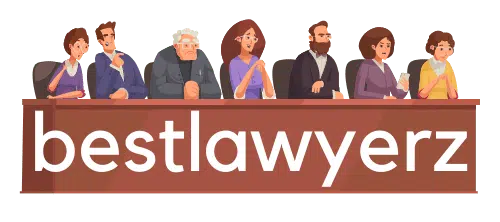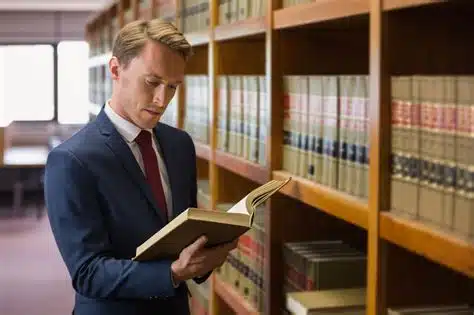Role of an Education Lawyer
Education is a fundamental right that should be accessible to all. However, there are various legal issues that can arise within the education system. This is where the role of an education lawyer becomes crucial. An education lawyer specializes in handling legal matters related to education, ensuring compliance with education laws, advocating for equal educational opportunities, and supporting students and parents in legal disputes.
One of the main responsibilities of an education lawyer is to advocate for equal educational opportunities. They work to ensure that every student has access to quality education, regardless of their race, gender, disability, or socioeconomic background. This involves identifying and addressing any discriminatory practices within the education system, such as segregation or unequal resource allocation.
In addition to advocating for equal educational opportunities, education lawyers also play a significant role in ensuring compliance with education laws. They are well-versed in the legal framework governing education and work closely with educational institutions to ensure they are meeting the required standards. This includes issues related to curriculum development, student discipline, special education services, and student privacy rights.
- Curriculum development: Education lawyers assist educational institutions in developing curricula that meet both educational goals and legal requirements. They ensure that the curriculum is inclusive, providing students with a well-rounded education.
- Student discipline: When it comes to student discipline, education lawyers help schools navigate the complex legal landscape. They ensure that disciplinary actions are fair, reasonable, and comply with due process.
- Special education services: Education lawyers also specialize in matters related to special education. They work with parents, students, and schools to ensure that students with disabilities receive the necessary accommodations and support to succeed academically.
- Student privacy rights: With the advancement of technology, student privacy rights have become an important area of focus. Education lawyers help schools establish policies and procedures to protect student privacy in the digital age.
Furthermore, education lawyers provide support to students and parents who are involved in legal disputes. This can range from issues related to student rights, such as freedom of expression, to more serious matters such as bullying or disciplinary actions. Education lawyers help students and parents navigate the legal process, provide them with legal advice, and represent them in court if necessary.
| Role of an Education Lawyer: |
|---|
| Advocate for equal educational opportunities |
| Ensure compliance with education laws |
| Support students and parents in legal disputes |
In conclusion, the role of an education lawyer is multifaceted and essential in ensuring the proper functioning of the education system. They advocate for equal educational opportunities, ensure compliance with education laws, and support students and parents in legal disputes. By addressing legal issues and advocating for the rights of students, education lawyers contribute to creating a more inclusive and equitable educational environment.
Legal Issues in Education
A sound education system is crucial for the development and progress of any nation. It serves as the foundation for a literate and informed society. However, the field of education is not without its legal challenges and complexities. In this blog post, we will explore some of the common legal issues that arise in the realm of education and the role of education lawyers in addressing and resolving these issues.
One of the primary legal challenges in education is ensuring compliance with education laws. Educational institutions, whether public or private, must adhere to various federal, state, and local regulations. These laws cover a wide range of areas, including curriculum standards, student privacy rights, special education services, and safety regulations. Failure to comply with these laws can result in legal consequences for both the institution and its staff.
Another significant legal issue in education is advocating for equal educational opportunities. It is the responsibility of education lawyers to fight against discrimination and ensure that all students have access to quality education regardless of their race, gender, nationality, or socio-economic background. Education lawyers play a vital role in challenging educational policies or practices that perpetuate inequality and striving for equitable educational opportunities for all.
- Inadequate funding for education: Many schools face financial constraints, which can hinder their ability to provide a high-quality education. Education lawyers can advocate for increased funding for schools and ensure that resources are distributed fairly.
- Disciplinary actions and student rights: Education lawyers also assist students who face disciplinary actions and help protect their rights during such proceedings. They ensure that students are given a fair hearing and their due process rights are upheld.
- Special education services: Students with disabilities have the right to receive appropriate special education services. Education lawyers can work with parents and school districts to ensure that these students’ needs are met and that they receive the necessary support and accommodations.
Education lawyers play a crucial role in supporting students and parents in legal disputes. They provide legal advice and representation to individuals facing educational challenges such as discrimination, expulsion, or denial of services. Education lawyers are well-versed in education laws and regulations, and they can guide students and their families through the complex legal processes involved in resolving these disputes.
| Role of an Education Lawyer | Legal Issues in Education | Advocating for Equal Educational Opportunities |
|---|---|---|
| Provide legal advice and representation to students, parents, and educational institutions. | Ensuring compliance with education laws. | Fighting against discrimination and promoting equitable access to education. |
| Assist in resolving legal disputes related to education. | Inadequate funding for education. | Disciplinary actions and student rights. |
| Ensure students’ rights are upheld during disciplinary actions. | Special education services. | Supporting students and parents in legal disputes. |
In conclusion, legal issues in education are diverse and require the expertise of education lawyers. These professionals play a critical role in ensuring compliance with education laws, advocating for equal educational opportunities, and supporting students and parents in legal disputes. By addressing these legal challenges, education lawyers contribute to the overall improvement of the education system and the protection of students’ rights.
Advocating for Equal Educational Opportunities
Advocating for Equal Educational Opportunities
Educational opportunities should be available to all individuals regardless of their race, gender, or socioeconomic background. Unfortunately, many students face barriers that limit their access to quality education. Advocating for equal educational opportunities is crucial to ensure that every student has a fair chance to succeed.
One of the key reasons why advocating for equal educational opportunities is important is because it helps to address the achievement gap. The achievement gap refers to the disparity in academic performance between students from different backgrounds. By advocating for equal opportunities, we can work towards closing this gap and creating a more equitable education system.
Advocacy can take many forms, from working with policymakers to advocating for policy changes, to supporting grassroots organizations that provide resources and support to underserved communities. It is essential to amplify the voices of marginalized students and their families, as they are often the most affected by educational inequalities.
Additionally, advocating for equal educational opportunities involves promoting diversity and inclusion within schools. This can be done through the implementation of inclusive curriculums, diversity training for teachers, and ensuring access to extracurricular activities for all students. By embracing diversity, schools can create an environment where every student feels valued and empowered.
- Advocacy for equal educational opportunities
- Closing the achievement gap
- Working with policymakers and grassroots organizations
- Amplifying marginalized voices
- Promoting diversity and inclusion
| Advantages | Challenges |
|---|---|
| Equality and fairness in education | Resistance to change |
| Improved academic performance | Lack of resources |
| Enhanced social and economic opportunities | Systemic barriers |
Ensuring Compliance with Education Laws
When it comes to the education system, there are numerous laws and regulations in place to ensure that schools provide a safe and inclusive environment for students. As an education lawyer, one of the primary responsibilities is to ensure compliance with these laws. This involves working closely with educational institutions, administrators, teachers, and parents to ensure that all aspects of the education system are in line with the legal requirements. Compliance with education laws is essential to protect the rights of students, promote equal access to education, and maintain the integrity of the education system as a whole.
One of the key aspects of ensuring compliance with education laws is staying up-to-date with the ever-evolving legal landscape. Education laws can vary from state to state and may also be subject to changes and updates. As an education lawyer, it is crucial to stay informed about these laws to provide accurate advice and guidance to educational institutions. This includes analyzing new legislation and case law, attending conferences and seminars, and collaborating with other legal professionals specializing in education law.
In order to effectively ensure compliance with education laws, it is essential to have a comprehensive understanding of the legal framework governing the education system. This includes laws related to student rights and protections, special education, discipline and expulsion, confidentiality of student records, and anti-discrimination and harassment. By having a thorough knowledge of these laws, education lawyers can guide schools and educators in complying with their legal obligations and, if necessary, provide representation in legal disputes.
Education lawyers not only work closely with schools and educational institutions but also play a crucial role in supporting students and parents in legal disputes. Whether it’s advocating for students’ rights, addressing issues of discrimination or bullying, or resolving conflicts between parents and schools, education lawyers provide valuable advice and representation to ensure that the best interests of the students are protected.
- Effective communication, both written and verbal, is another vital aspect of ensuring compliance with education laws. Education lawyers must be able to clearly explain complex legal concepts to educational professionals and parents in order to facilitate understanding and cooperation.
- Collaboration and teamwork are also essential in this area of law. Education lawyers often work in partnership with school administrators, teachers, and parents to develop policies and practices that not only comply with the law but also promote a safe and inclusive learning environment.
- Lastly, attention to detail is paramount. Education lawyers must carefully review policies, contracts, and other documents to ensure that they align with the law and protect the rights of all parties involved.
| Role of an Education Lawyer | Legal Issues in Education | Advocating for Equal Educational Opportunities |
|---|---|---|
| Education lawyers play a crucial role in ensuring compliance with education laws to protect the rights of students and maintain the integrity of the education system. | Education lawyers address legal issues such as discrimination, bullying, and student rights to ensure a safe and inclusive learning environment. | Education lawyers advocate for equal access to education for all students, regardless of their background or individual needs. |
Supporting Students and Parents in Legal Disputes
In today’s educational landscape, legal disputes can arise between students, parents, and educational institutions. These disputes can range from disciplinary actions to special education services. It is crucial to have professionals who specialize in education law to provide support and guidance to students and parents throughout the legal process.
One of the key roles of an education lawyer is to support students and parents in legal disputes. They are well-versed in education laws and regulations specific to their jurisdiction, ensuring they have the expertise necessary to navigate the complexities of the legal system. Education lawyers can provide valuable advice to students and parents, helping them understand their rights and options when faced with a legal conflict.
When students or parents find themselves in a legal dispute with an educational institution, it is vital to seek legal representation. An education lawyer can advocate on their behalf, ensuring their voices are heard and their interests are protected. By acting as advocates, education lawyers can help students and parents negotiate settlements or represent them during mediation and trials.
Furthermore, education lawyers play a crucial role in providing support to students and parents beyond the legal process. They can assist in resolving disputes through alternative methods such as arbitration or informal negotiations, aiming to achieve a mutually beneficial outcome for all parties involved.
In addition to their legal expertise, education lawyers also provide emotional support to students and parents during what can often be a challenging and stressful time. They understand the impact legal disputes can have on students’ education and well-being, and strive to minimize the disruption caused by these conflicts.
- Education lawyers have in-depth knowledge of education laws and regulations.
- They provide advice and guidance to students and parents.
- Education lawyers act as advocates during legal disputes.
- They assist in alternative dispute resolution methods.
- Education lawyers offer emotional support to students and parents.
| Role of an Education Lawyer | Legal Issues in Education | Advocating for Equal Educational Opportunities |
|---|---|---|
| Provide legal support and guidance to students and parents. | Address legal disputes within educational institutions. | Ensure equal access and opportunities for all students. |
| Advocate on behalf of students and parents during legal proceedings. | Protect students’ rights and interests. | Promote inclusivity in education. |
| Assist in negotiation, mediation, and trials. | Ensure compliance with education laws and regulations. | Support diverse student populations. |
Frequently Asked Questions
Question 1: What is the role of an Education Lawyer?
An Education Lawyer specializes in the legal issues surrounding education, representing schools, students, parents, and other education stakeholders. They provide legal advice, advocate for equal educational opportunities, ensure compliance with education laws, and support students and parents in legal disputes.
Question 2: What are some common legal issues in education?
Common legal issues in education include discrimination, special education rights, school discipline, bullying, freedom of speech, student privacy, teacher contracts, and school funding concerns.
Question 3: How do Education Lawyers advocate for equal educational opportunities?
Education Lawyers advocate for equal educational opportunities by working to eliminate educational disparities based on race, gender, disability, or other protected characteristics. They may file lawsuits, negotiate settlements, and engage in policy advocacy to promote fairness and equality in education.
Question 4: What is the role of Education Lawyers in ensuring compliance with education laws?
Education Lawyers help schools and educational institutions navigate complex education laws and regulations to ensure compliance. They review policies and procedures, provide legal guidance, conduct trainings, and represent clients in investigations or disputes related to compliance issues.
Question 5: How do Education Lawyers support students and parents in legal disputes?
Education Lawyers support students and parents in legal disputes by providing legal representation and advocacy. They help prepare legal documents, gather evidence, negotiate with opposing parties, and represent their clients in court or administrative hearings to protect their rights and interests.
Question 6: What qualifications and experience should an Education Lawyer have?
An Education Lawyer should have a law degree and be licensed to practice law. They should have expertise in education law and regulations and a deep understanding of the legal issues affecting students, schools, and educational institutions.
Question 7: How can someone find an Education Lawyer?
To find an Education Lawyer, individuals can ask for referrals from other education professionals, consult local bar associations, search online directories, or contact organizations specializing in education law. It is important to consider the lawyer’s experience, reputation, and expertise in education law when making a selection.






